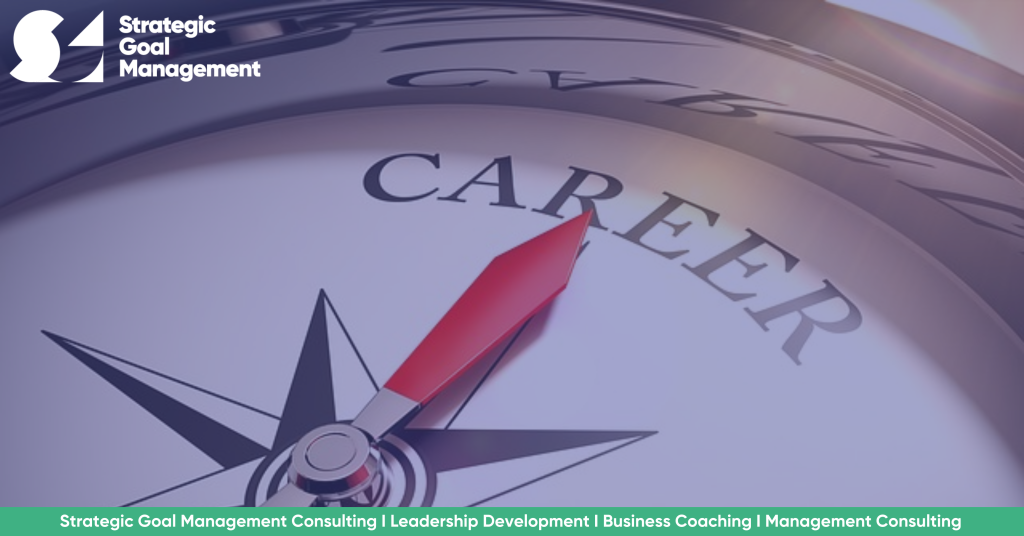
Career coaching: do you need help in your career? Do you need help determining what direction to take or how to achieve your professional goals? If so, you’re not alone. Many people need help navigating the complexities of their career paths, especially in today’s fast-paced and ever-changing job market.
With the help of your career coach, you can gain clarity, confidence, and direction to achieve your career aspirations. In this comprehensive guide, we’ll explore the benefits of career coaching, what to expect from a career coach, and how to choose the right coach for you.
See our career success stories.
What is Career Coaching?
Career coaching is working with a trained professional to explore your career goals, identify your strengths and weaknesses, and develop a plan to achieve your objectives. A career coach can provide guidance, support, and resources to help you navigate the challenges of your career path.
Whether you want to change careers, advance in your current role, or gain clarity on your professional direction, a career coach can help you achieve your goals. They can help you develop new skills, build confidence, and overcome obstacles holding you back.
Do you Need a Career Coach?
Several signs indicate that you may benefit from hiring a career coach. These include feeling stuck or unfulfilled in your current job, needing direction or clarity in your career goals, struggling to make progress or achieve success, feeling overwhelmed or stressed at work, or experiencing a significant life change that impacts your career. Consider working with a career coach if any of these resonate with you.
What are the benefits of career coaching? Read on to find out more.

10 Benefits of Career Coaching
There are numerous benefits to working with a career coach, and Strategic Goal Management has provided ten below:
1. Clarity of Purpose and Direction
A career coach can help you clarify your career goals and create a plan to achieve them. By working with a coach, you can better understand your strengths and weaknesses and identify the areas where you need to focus your efforts. You must know where you want to be able to get there. This is why planning is essential, especially regarding your career. Planning will help ensure that everything goes smoothly in the future. Career coaching helps people like you develop a career growth plan and work towards achieving those goals.
2. Career Advancement Through Overcoming Your Limiting Beliefs
Your career coach can help you overcome limiting beliefs that may hold you back. For example, if you don’t believe you have the skills or experience to achieve your career goals, a coach can help you challenge those beliefs, build confidence, and identify training. Furthermore, your career coach can help you advance by providing strategies to improve your visibility, performance and reputation in your industry or field.
3. Increase Your Confidence
Your career coach can help you build your confidence and self-esteem, essential for success in any career. A coach can help you overcome any doubts or fears and limiting self-beliefs that may be holding you back by providing encouragement and support.
4. Improve Your Performance
A career coach can help you improve your performance and productivity by providing feedback and guidance on enhancing your skills and knowledge.
5. Make you Accountable for your Career
A career coach can help you stay accountable for your goals and commitments. They can provide feedback, guidance, and support to help you stay on course to achieve your objectives.
6. Higher Earnings
A career coach can help you negotiate better salaries and benefits and develop strategies to increase your earning potential. This gambit can be employed with your current employer or to get the maximum possible salary and package in a new role.
7. Learn how to manage your time and tasks.
Time management is a vital skill to develop, but it can be challenging to do independently. With the support of a career coach, you can learn how to manage your time and tasks better. An excellent way to start is by learning how to prioritise tasks. Your coach will teach you how to set goals for yourself and create plans for achieving them–with the ultimate goal being that these plans will help keep you on track with both work-related responsibilities and personal life goals.
8. Better Work-Life Balance
A career coach can help you get a better work-life balance by providing strategies to manage your time effectively and reduce stress. A better work-life balance may mean a change of role is required to facilitate the necessary balance goals of the individual.
9. Enhance Your Self-Awareness
Self-awareness can be learned but is often lacking in people, which can hold them back from growth. It’s important for improving your work and life because it helps you understand your strengths and weaknesses, enabling you to improve in areas you need to know.
Self-awareness also helps with understanding why you are successful or unsuccessful. For example, if someone says they have trouble speaking up in meetings but then goes on to explain why (they feel insecure), this allows the coach to ask questions about possible solutions for their problem so that they may find ways around them (such as by practising speaking up before going into a meeting).
10. Provide Networking Opportunities
A career coach can help you build your professional network and connect with other professionals in your industry. By introducing you to new contacts and resources, a coach can help you expand your opportunities and advance your career.
What to Expect from Working with a Coach

Working with a coach is a highly personalised process. Your coach will work with you to identify your needs and develop a plan to achieve your career aspirations.
Your coach will work with you to assess your current situation, including your interests and career goals. This is a vital part of the process that enables the career coach to help you set your goals and develop an action plan to achieve them, including identifying the steps you need to take and the resources you need to access.
Leadership skill development and training needs analysis can be used to reach the required level for a new role or promotion from your current job. Your career coach can provide training, resources, and guidance to help you develop new skills and enhance your existing ones.
Most importantly, you will provide ongoing support, feedback, and encouragement as you work towards your goals. Furthermore, the coach will ensure you remain accountable for your progression.
How to Choose your Career Coach
Choosing the right coach is an important decision. Below are some of the factors you should consider:
Book a Coaching Consultation
Book a consultation with the coach to understand their coaching style and approach; companies like Strategic Goal Management offer a free consultation. This will help you determine if we are the right fit for you.
The Qualifications of the Coach
Look for a coach with the training and credentials to provide effective coaching. Ideally, they should have experience and recognised certifications.
Specialisation
Consider whether the coach specialises in the area you need help with. For example, if you want to change jobs, you may want to work with a coach with experience.
Reviews and Testimonials of the Coach
Look for Google reviews and testimonials from past clients to get an idea of their experience working with the coach. This can provide valuable insights into the coach’s effectiveness and the results they’ve helped others achieve.
Availability and Accessibility of the Coach
Consider the coach’s availability and accessibility and their communication style. Make sure that their schedule aligns with yours and that you’re comfortable with their preferred methods of communication. Career coaching can be done online via video calls; however, you may wish to meet your coach in person. Find out what potential coaches offer before choosing.

Tips for Making the Most of Your Career Coaching Experience
To get the best from your career coaching experience, coming prepared and open to feedback and suggestions is essential. Before your first session, take some time to reflect on your goals and what you hope to achieve through coaching. Be honest with your coach about your strengths and weaknesses, and be willing to try new approaches and strategies. It’s also important to communicate openly with your coach about any challenges or obstacles you may face so that they can provide tailored support and guidance. Finally, be patient and persistent, career change takes time and effort, but you can achieve your goals with the proper support and mindset.
Summary
We hope this article has shed some light on the benefits of working with a career coach.
It can be a tough decision, but working with a career coach is worthwhile. Coaching represents a valuable investment in your professional development and success. Whether you’re looking to change careers, advance in your current role, or gain clarity on your professional direction, a coach can provide you with the guidance and support you need to succeed.
If you have decided that you want to try working with a company to help you achieve what you want, contact Strategic Goal Management today.